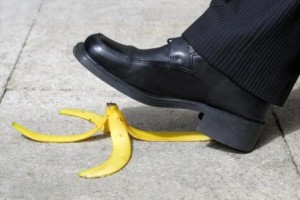 Successful Forex traders are a rare breed. Only 5% of retail traders actually make money in the markets consistently.
Successful Forex traders are a rare breed. Only 5% of retail traders actually make money in the markets consistently.
But consistent profitability is the goal that all retail traders aspire to.
So what do you really need to be a successful Forex trader? This is what i think you need.
1. A Professional Trading Strategy.
Without a professional trading strategy you will really struggle to be consistently profitable. There are many retail trader strategies available to you, but they are all constructed with beliefs about the markets that are incorrect.
The foundations of all good strategies have to be built with a sound understanding of how the markets work. If you have that understanding built into your strategy, then you will have a much greater chance of success. If you build something without a solid foundation it will fail.
2. A Trading Edge.
You will hear this a lot on retail trading websites. An edge is an advantage that traders look for to give them a head start on the competition. Many retail traders believe that they have found, or need to find, something in the market that no one else has previously found, and that will be their trading edge.
Let me just say this for the record. Stop wasting your time trying to find an edge. Your edge is knowing how professional traders trade the markets, and trading the way they trade. If you continue to trade like a retail trader, then you will never find the edge you are looking for, and you will continue to lose money. Knowing how to trade correctly, combined with a professional trading strategy, is the only edge you will ever need.
3. A Professional Approach.
So you know how to trade correctly, you have your professional trading strategy, so you have your trading edge. What you now need to tie it all together is a professional approach.
This can be a problem for some traders. Everyone wants to get into the markets, make their money and get out again. If you have the understanding of the markets needed to be successful, and you have a professional strategy, then its perfectly reasonable to expect to do this on every trade, but its not going to happen on every trade.
Sometimes you have to wait for the correct entry, or the correct exit. You cannot just jump in and out of the market and expect to make money. This is not how professionals trade. A professional trader will wait until the odds of success are firmly weighted in his or her favor, before entering the market. The chances of a successful trade are then much greater.
4. Professional Risk Management.
A professional approach requires you to manage risk. Every time you enter the market you are taking a risk. If that risk is adequately managed, then over time with a good strategy you will make money consistently. Jumping into the markets with 10 lots and no stop loss when you have 5k in your trading account, is not adequately managing risk.
Retail traders are fixated on how much they can make in the markets. Professional traders are fixated on how much they can lose in the markets. If you lose less, you make make more. Just knowing the correct place to put your stop loss will save you money. Whats the point in getting stopped out for 20 pips on every losing trade, when you can get stopped out for 12, or 16. Losing less will make you more.
5. Capital Preservation.
Capital preservation is a major part of risk management. If you have more capital, you can make more money with less risk, if you have less capital you make less money with more risk. So you need to manage risk effectively in order to increase you capital balance over time.
Is it better to make 10% per year on a billion dollar fund with a low risk approach, or better to make 100% per year on a 100k fund with a high risk approach? Its not rocket science is it? This is why the top hedge funds are never short of people willing to invest, because they know how to generate good returns by managing risk, and preserving capital.
I hope this article has given you some insight into how i like to approach the markets.
If you wish to learn how to trade Forex using professional trader strategies, please consider my Forex training and mentoring course.
If you enjoyed this article please feel free to like it or share it. Thanks for visiting my blog. Have a great day. 🙂




